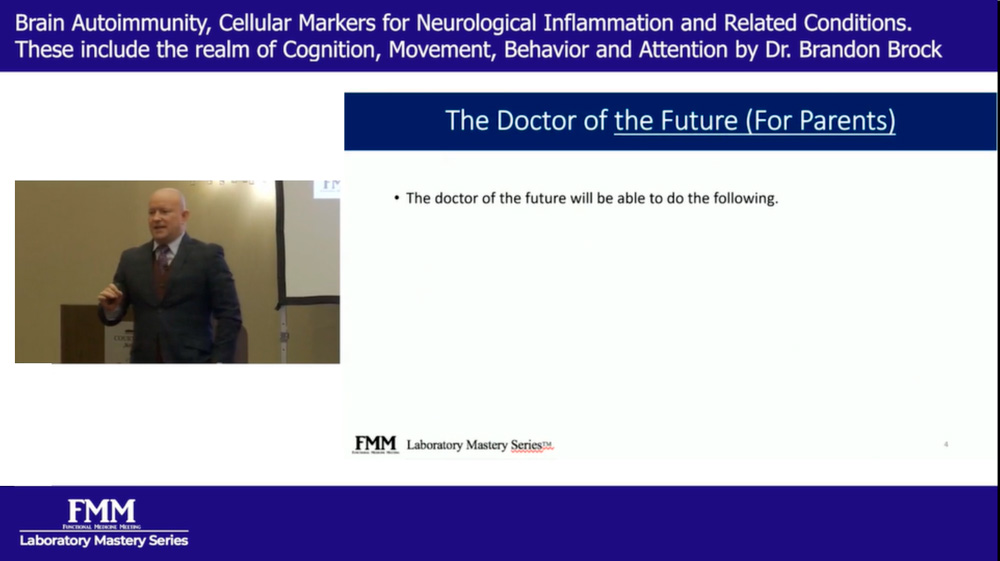Description
Laboratory testing will include an array of neural antigens and genetic tests which offers very specific antibody-to-antigen recognition and potential risk to develop Neurological Autoimmune disease. The panel is designed to assess an individual’s IgG, IgA and IgM sensitivity to these antigens at the peptide level. Various labs intend to reduce the prevalence of neurological conditions by empowering patients and physicians with a vital resource for early risk detection and an enhanced focus on personalized primary prevention.
Various assays will be discussed pertaining to specific total IgG (subclasses 1, 2, 3, 4), total IgA (subclasses 1, 2) and total IgM antibodies. The classification of High risk to Moderate to In Control denotes the level of antibody reactivity detected through this analysis.
Autoimmunity is a main component in nervous system diseases where a misguided immune response attacks the body’s own organs and tissues. Autoimmune disorders affect 5-10% of the general population and can target virtually any structure within the central or peripheral nervous system in a highly specific way, targeting a very specific cell population (e.g., Purkinje cells of the cerebellum). Depending on the cell type that is targeted in different central nervous system (CNS) structures (e.g., the astrocyte in neuromyelitis optica), the syndromes that result may be diverse, such as those associated with optic neuritis, myelitis, and attacks of brain edema in Neuromyelitis Optica. Understanding these specific disorders requires an analysis of how the target antigen molecules affect immune cellular interactions both to generate the autoimmune reaction and to produce the immune–mediated injury of the nervous system.
Autoantibodies are a novel emerging entity that is useful in providing such information in early stages of the disease with a simple blood sample. Various forms of testing that will be discussed will cover the specific type of autoimmune neural disease (eg: demyelination, blood brain barrier disruption, optical/peripheral neuropathy, neuromuscular disorders, brain inflammation and autoimmunity) and the degree of severity to implement the most effective treatment plan possible.
Mental and Behavioral health will be discussed as it pertains to genetics and autoimmune / inflammatory issues.
Symptoms and Conditions related to Testing
– Cognitive decline
– Memory loss
– Ataxia
– Balance problems
– Neuropathy
– Alzheimer’s disease
– Multiple sclerosis
– Encephalitis
– Muscle spasms
– Huntington’s disease
– Epilepsy
– Parkinson’s disease
– Dementia
– Myasthenia gravis
– Muscle stiffness/rigidity
– Optical decline
– Neuromyelitis optica
– History of concussion
– Autism
– PANDAS/ANDAS/OCD
– Demyelinating diseases
 Dr. Brandon Brock is a practitioner in Dallas Texas who holds a Doctorate in Family Nursing Practice from Duke University, and a Doctorate in Chiropractic. He has a Diplomate in Functional Neurology, Nutrition, Conventional Medicine, and Integrated Medicine as well. He holds Fellowship status in 2Childhood Disorders, Neurology, Electro-diagnostic Medicine, Neurochemistry and is a member of the International College of Chiropractors. Dr. Brock is also a Global Clinical Research Scholar from Harvard Medical School.
Dr. Brandon Brock is a practitioner in Dallas Texas who holds a Doctorate in Family Nursing Practice from Duke University, and a Doctorate in Chiropractic. He has a Diplomate in Functional Neurology, Nutrition, Conventional Medicine, and Integrated Medicine as well. He holds Fellowship status in 2Childhood Disorders, Neurology, Electro-diagnostic Medicine, Neurochemistry and is a member of the International College of Chiropractors. Dr. Brock is also a Global Clinical Research Scholar from Harvard Medical School.
In Dallas Texas, he serves as chief clinician at Foundation Physicians Group. He enjoys teaching and providing educational support to facilitate learning for multiple groups and agencies. This includes topics that ranges from nutrition, and regenerative medicine to pharmacology and governmental policy.
Dr. Brock received the most outstanding functional neurology teacher of the year from the ACA council of Neurology four years straight and two times from IAFNR (International Association of Functional Neurology and Rehabilitation). He also received the humanitarian award from IAFNR. Dr. Brock and is also the honorable recipient of the prestigious Living Legacy Award from Samford Universities Ida Moffett School Nursing in 2015. He has also been the spotlight student at Duke University and is on the Scientific Advisory Board for the Mindd Foundation. His unique blend of clinical and teaching experience along with a background in medicine, chiropractic, neurology and nutrition has created a unique and integrated clinical background that has helped him treat difficult cases and offers comprehensive angles on education and clinical presentations. Dr. Brock is a founding partner and educator at BTB Health Systems and Functional Neurology Seminars.

